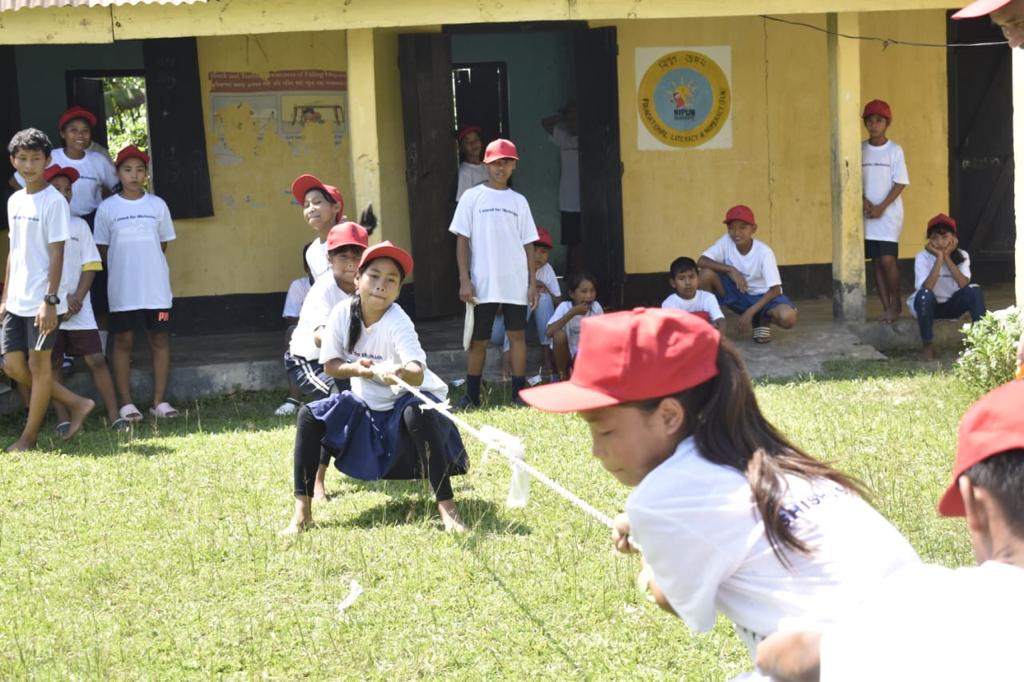


Indigenous games have evolved beyond their initial purpose as mere physical endeavours into powerful tools for preserving and showcasing the distinctive heritage of people in both Karbi Anglong and West Karbi Anglong, a region celebrated for its rich traditional cultural heritage.
Karbi Anglong, located in the heart of Assam, is the ancestral home of the indigenous Karbi tribe whose people, despite facing many challenges, take immense pride in their vibrant traditions, folklore, and languages.
|
|
Recognizing the importance of safeguarding and celebrating this cultural wealth, Shishu Sarothi, in collaboration with the Samagra Siksha Abhiyan Autonomous Council Karbi Anglong, undertook an initiative to integrate indigenous games within school settings, thereby transforming the schools into more enjoyable and joyful spaces for the students. This initiative involved active collaboration with local cultural experts, educators, and members of the community. Together, they curated a list of traditional games that not only reflected the physical prowess of the Karbi people but also encapsulated their cultural stories and values. |
The games were carefully selected to be inclusive, so that every student, regardless of ability, could participate and enjoy the games. They were designed to cater to the diversity of the students across age, gender and ability fostering a sense of unity among them.
Whether it was the traditional "Kengdongdang" and "Ohi Kangho Kekat" involving agility and strategy or the "Sonsuri" that requires teamwork and cooperation, each game contributed to a holistic learning experience.
|
|
|
By actively encouraging both boys and girls to participate in these games, the schools are breaking gender stereotypes and fostering a more equitable learning environment.
The indigenous games thus go beyond physical benefits, and serve as a testament to the rich cultural heritage of the Karbi people. The students not only engage in physical activities but also immerse themselves in the narratives, rituals, and symbolism embedded in these games. This hands-on approach to learning ensures that the cultural legacy is not only preserved but also passed on to the younger generation.
The success of this initiative is not solely dependent on school activities. Recognizing the importance of community involvement, schools actively engage parents, local leaders, and cultural experts. They serve as a platform for the community to come together, celebrate their heritage, and actively participate in the educational journey of the younger generation.
This groundbreaking initiative in Karbi Anglong schools is indeed an inspiring model for other regions, encouraging them to embrace and celebrate their indigenous roots within the sphere of education.